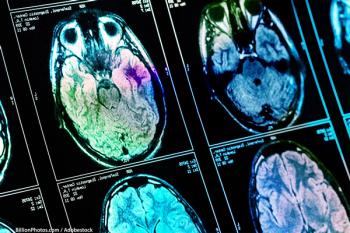
Quality-of-Life Issues Important in Neuro-Oncologic Treatment
As part of our Society of Neuro-Oncology annual meeting coverage, we discuss quality of life issues and neurologic rehabilitation in patients with neuro-oncologic diseases.
As part of our coverage of the 19th Annual Scientific Meeting and Education Day of the Society of Neuro-Oncology, we are speaking today with Mary K. Hughes, MS, RN, clinical nurse specialist in the department of psychiatry at the University of Texas MD Anderson Cancer Center. At this year’s meeting, Hughes is taking part in an education session discussing quality of life and neurologic rehabilitation of patients with neuro-oncologic diseases.
-Interviewed by Leah Lawrence
Cancer Network: Ms. Hughes, why is quality of life an important topic to discuss in patients with neuro-oncologic diseases?
Ms. Hughes: Quality of life is what most people focus on. They don’t want to just be alive, they want to be able to enjoy their lives, feel like they have meaningful lives, and feel like they are productive in their family and in society. Sometimes neuro-oncological disease can affect a person’s ability to function, not only doing intimate activities of daily living, but function in their family and in their job, if they choose to work.
Cancer Network: When in the course of disease management should providers address issues of quality of life?
Ms. Hughes: I think when the person is first seen, their provider should ask them about quality of life and how important it is. How is the disease affecting their life? During the treatment process, how is this affecting your quality of life? At some point, people are not able to eat like they used to or they are not able to drive, and that certainly affects their quality of life. It is an ongoing process across the continuum of care, from diagnosis through survivorship.
Cancer Network: Your portion of the session discusses intimacy and sexual dysfunction. Are these issues common among patients with these diseases?
Ms. Hughes: Yes they are. Often people mistake sexual dysfunction occurring in only people that have cancer of the genitals. Any time people are treated for cancer of any type, it can affect their sexuality. By discussing their sexuality, this shows the patient that you are interested in treating the whole person, not just the diseased body part. By bringing it up, it legitimizes the topic for discussion. When the practitioner talks about it, the patient says, “I can talk about it too. I am not the only one that has these issues.” It also emphasizes the importance of trying to maintain normal activities and relationships during and after treatment.
Cancer Network: What are some of the specific problems patients may face with sexual dysfunction or intimacy?
Ms. Hughes: One would be low libido, the person is not very interested in sex and that can be for a variety of reasons, maybe from fatigue or the medicines they are taking. The male may have erectile dysfunction. The female may have difficulty lubricating. That is arousal-they are not able to be aroused. For some people, they are not able to have an orgasm or the orgasm happens too fast or it takes too long to have an orgasm.
Cancer Network: Are these issues something that should be addressed in every patient?
Ms. Hughes: Absolutely. It does show that you are interested in the person as a whole, not just their diseased part. One of the things that happens in people with brain tumors, they may not recognize visual clues like they used to. For example, how they knew their partner was interested in sex. They also have physical changes because of steroids, so they may have a poor self-image. Sometimes they may be more disinhibited and, at other times, more inhibited. Also, they might not remember the last time they had sex. Their partner might have to remind them-“It has been awhile” or “We just had sex yesterday, don’t you remember?” Those are some specific sexual effects of brain tumor treatment.
Cancer Network: This was all very helpful information about a topic that is not frequently discussed. Thank you again for taking a few minutes to preview this topic for us.
Ms. Hughes: You’re welcome. It has been my pleasure.
Newsletter
Stay up to date on recent advances in the multidisciplinary approach to cancer.




































